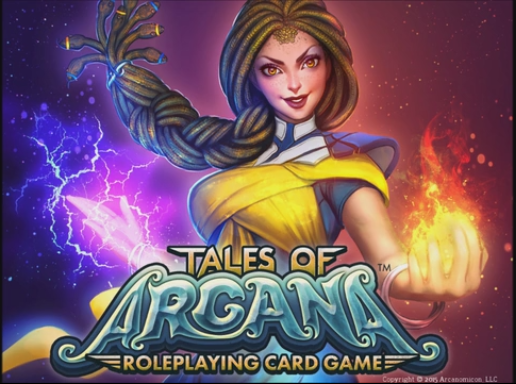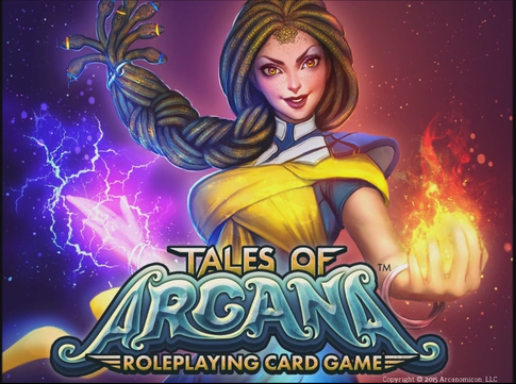
On the planet Genesis, lies the continent Arcana, a world of wild magic, I had a chance to chat with U of I alum Matt Knicl’s to discuss his new game, Tales of Arcana.
Role playing card games have received increasing attention in recent years when it was announced that the Green Bay Packers play Settlers of Catan. Prior, one could argue that RPGs were for super nerd hobbyist and not for the general masses. But how could this be true if professional football players obsess over RPGs and if games like Magic: The Gathering have over 20 million players worldwide and continues to grow?
According to Matt Knicl, U of I alumni and former writer for Magic: The Gathering, new RPGs are necessary to cater to todays’ generation of role playing individuals.
While RPCGs are growing in popularity, it is still a challenge to get all your friends together to keep the game going. Maybe your old RPG playing buddies now work the night shift and do not have 3-4 hours to set aside. And recruiting new players is hard because they have to purchase expensive rule books and invest time as well as money into playing.
In essence, RPGs need a more approachable, less-committed version, according to Knicl. For this very reason, he was inspired to create a version of RPGs that is for those with RPG commitment issues. Knicl’s game, Tales of Arcana, randomly generates characters by drawing from the deck of cards.

Knicl demonstrated over the phone the process of randomly generating characters. In our trial, we got “gnome ranger, cowardly, transfers into a wolf, and controls flames with their mind”. The game proceeds by rolling a six-sided die in order to add weight to your action. For example, if the payer decides to transfer into a wolf, rolling a 6 would make this action very powerful, rolling a 1 would make it very weak. This setup is what distinguishes Tales of Arcana from other RPGs, he says.
This idea of post decision randomness based on a 6-sided day allows the player to fail and succeed more often relative to the 20-sided die used in Dungeons & Dragons. With this, the storytelling is based on the cards you have and not on stats or modifiers. Gameplay also goes a lot quicker, taking around 2-3hrs.

Knicl has worn many hats since graduating and moving to Seattle. He has written for Magic: The Gathering, Dungeons & Dragons, been a video game tester for Nintendo, and even an EMT. When he decided to write Tales of Arcana, he contacted artists from DeviantArt to do the card art and he made a Kickstarter to back the printing and shipping costs. He hopes that Tales of Arcana will satiate a serious need to cater to the RPG players of our generation. These players come from diverse backgrounds and are not so intent on learning strict rules or book-based games. Tales of Arcana will be more creative and less time consuming, according to him. He says:
For our generation of RPCG players, they are used to watching shows such as Adventure Time, a show that would make an old-school Tolkien vomit at the inaccuracies. But the appeal is that Adventure Time gives fantasy less rules. That’s why Tales of Arcana is designed such that the player controls their own fantasy.
Tales of Arcana can be downloaded for free to Print and Play at the Kickstarter page.
All images used with permission by Arcanomicon, LLC.








